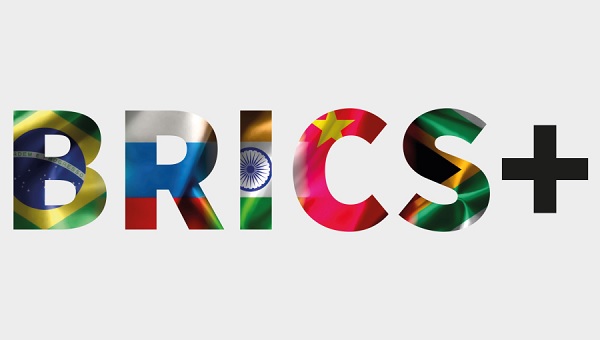
As Ethiopia strengthens its engagement in the influential group of emerging economies of the BRICS bloc, it stands to benefit from increased investment, trade opportunities, and collaborative initiatives that can significantly enhance its development trajectory.
Recently, the 11th BRICS Parliamentary Forum was held at Brasília, Brazil. Delegations from 16 countries, including BRICS members and invited states, took part in the event.
BRICS represents a substantial portion of the global economy, accounting for nearly 25% of the world’s GDP and encompassing over 40% of the global population. For Ethiopia, joining this coalition signifies access to a diverse network of markets and resources.
In his speech at the summit, President of the Federal Senate (upper house) of the Brazilian National Congress, Davi Alcolumbre called for reform of the international security architecture, strengthening of national health systems and the development of rules in the field of artificial intelligence.
Alcolumbre recalled that BRICS countries account for 40 per cent of global GDP and separately noted the active participation of women parliamentarians in the forum, calling it an important achievement.
This year’s BRICS summit marked a major step in legislative diplomacy among the expanded BRICS countries, showcasing the growing importance of multilateralism. This expansion has strengthened relationships between member states.
Brazilian Vice President Geraldo Alckmin also delivered a speech. He outlined the priorities of Brazil’s presidency of BRICS, including the formation of a pandemic response mechanism, the expansion of settlements in national currencies, and the financing of projects by the New Development Bank (NDB).
The New Development Bank, also known as the BRICS Development Bank, was highlighted as a key institution for fostering economic inclusion and trade enhancement among member states. Also the nations committed to intensifying legislative exchanges, data sharing, and cooperative lawmaking to address global challenges.
Alckmin called for the strengthening of parliamentary ties and collective action in the areas of global security and health.
The potential for foreign direct investment (FDI) from fellow BRICS nations is a particularly enticing prospect, as Ethiopia seeks to attract capital that can finance critical infrastructure projects, industrial development, and job creation.
By aligning itself with other rapidly growing economies, Ethiopia can leverage partnerships that will not only stimulate economic activities but also promote technological exchange and innovation. This collective strength is crucial for a country that is eager to elevate its position in the global economic landscape.
As BRICS countries continue to grow and develop, they are likely to view Ethiopia as an attractive destination for investment. This influx of capital is crucial for funding infrastructure projects, enhancing industrial capabilities, and ultimately creating jobs for the Ethiopian population.
To fully leverage its BRICS membership, Ethiopia has implemented a series of policy reforms aimed at fostering economic growth. These initiatives focus on various sectors that are critical for sustainable development.
Recently, the government economic policies aim to modernize this sector through the adoption of advanced farming techniques and sustainable practices. By investing in research and development, the government is working to increase agricultural productivity and food security. This transformation is critical for improving livelihoods and reducing poverty.
The government is actively pursuing trade agreements that can facilitate the exchange of goods and services. By tapping into BRICS markets, Ethiopia can increase its exports of products such as coffee, textiles, and agricultural goods.
Strengthening trade relationships will not only bolster Ethiopia’s economy but also foster regional integration, allowing the country to participate more actively in global supply chains. This engagement is essential for creating a resilient economy that can withstand external shocks.
While the prospects of BRICS membership are promising, Ethiopia faces several challenges that must be navigated carefully. Political stability, infrastructure bottlenecks, and socioeconomic disparities are pressing issues that need to be addressed to ensure sustainable growth.
The country also actively engaging in discussions with neighboring nations to bolster trade ties and create a more integrated market, which is essential for reducing food insecurity and to alleviate poverty throughout East Africa region as well as its aimed achieving sustainable development goals.
Also the country is strengthening regional partnerships and improving cross border trade, these efforts not only aim to ensure stable food supplies but also promote sustainable growth, benefiting communities and bolstering resilience against economic challenges in the region.
To diversify its economy, Ethiopia is focusing on industrialization and the growth of its manufacturing sector. The government has established industrial parks and offered incentives to attract both local and foreign businesses. Key sectors such as textiles and garments have been singled out for development, given their potential for job creation and export revenue generation.
The forum also advocated for enhanced intra-BRICS trade, improved access to finance, and stronger roles for national parliaments in shaping inclusive growth policies. Discussions also touched upon sustainable development and food security initiatives within BRICS countries.
The government is working to improve financial inclusion and create a more supportive environment for entrepreneurship. By enhancing access to finance, Ethiopia aims to empower local businesses, stimulate innovation, and drive economic growth from within. A thriving financial sector will be instrumental in facilitating investment and ensuring that the benefits of economic growth are widely shared.
Indonesia was represented at the forum by House of Representatives (DPR) legislator Mardani Ali Sera. He stressed the importance of deepening cooperation in the areas of trade, investment, finance and technology, and noted BRICS’ desire to strengthen multilateral cooperation.
“In addition, BRICS member nations have been promoting the use of local currencies in trade among them as a strategic measure to bolster economic resilience,” he pointed out.
Deputy Head of Inter-Parliamentary Cooperation Agency (BKSAP) Hussein Fadluloh, in turn, said that Indonesia is interested in implementing joint projects on investment and technology transfer, especially in the context of the national policy on deep processing of raw materials.
Belarus was represented at the forum by Sergey Rachkov, Chairperson of the Standing Commission of the House of Representatives of the National Assembly of Belarus.
He stated that the republic aims to become a full member of BRICS and is interested in expanding cooperation with the association in the areas of food, mechanical engineering, and agricultural technology. Rachkov also noted the importance of BRICS as a platform reflecting the interests of the Global South.
Additionally, Ethiopia must engage in continuous dialogue with its BRICS partners to align its economic policies with the collective goals of the group. This will require strategic planning and adaptability to the changing global economic landscape. The country’s commitment to implementing policies aimed at economic development will be crucial in determining the success of this venture.
BY FIKADU BELAY
THE ETHIOPIAN HERALD THURSDAY 12 JUNE 2025



